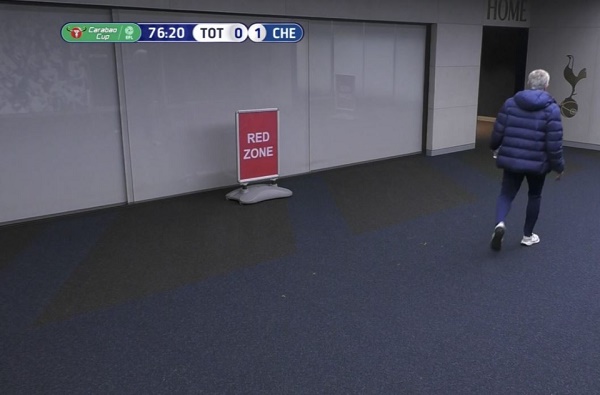Clad in a purple agbada and a face mask, 75-year-old Sani Demo boasts that no one can tell him the history of Kishi, an agrarian community in Oyo state, as his great-great-grandfather was also born in the town. According to him, his progenitors migrated from Torodi, a small rural community in Niger Republic, and were part of the early settlers in Kishi. Like his father, Demo was also born and raised in Kishi and holds the traditional title of the Ardo of the Fulanis.
At the busy Kara market where the light-skinned chief and his Fulani kinsmen ply their cattle trade, Demo beams with a smile as he speaks of the cordiality that exists between his people and the host community.
“My great grandfathers came with the king to this town. The Yoruba culture has become a part of our lives; we grew up here,” Demo said in fluent Yoruba while gesturing to the reporter to take a seat beside him.
“We don’t have any other language apart from Yoruba and our language. My three children speak Yoruba and our language fluently; they had their primary and secondary education here but they are not in Kishi at the moment. One teaches in Kebbi, two are at the University of Ilorin.
Advertisement
“There is even inter-marriage between us and the Yorubas. Even though we tried to protect that area so that our culture can be preserved, it is now out of our hands. We have about four of us who fell in love with Yoruba and there is nothing we can do about it. My nephew recently brought a Yoruba girl home to marry. I initially told him, NO, but two months after, we gave them the go-ahead. By December, the couple should be married.”
But beyond this cordiality exists years of strife and clashes between the members of the host community, majorly farmers, and their Fulani occupants who are mostly herders. But at one point, they began to see the need for peace and they brought up different initiatives to resolve the festering disagreement between farmers and herders.
FORGIVENESS COMES FIRST
Advertisement
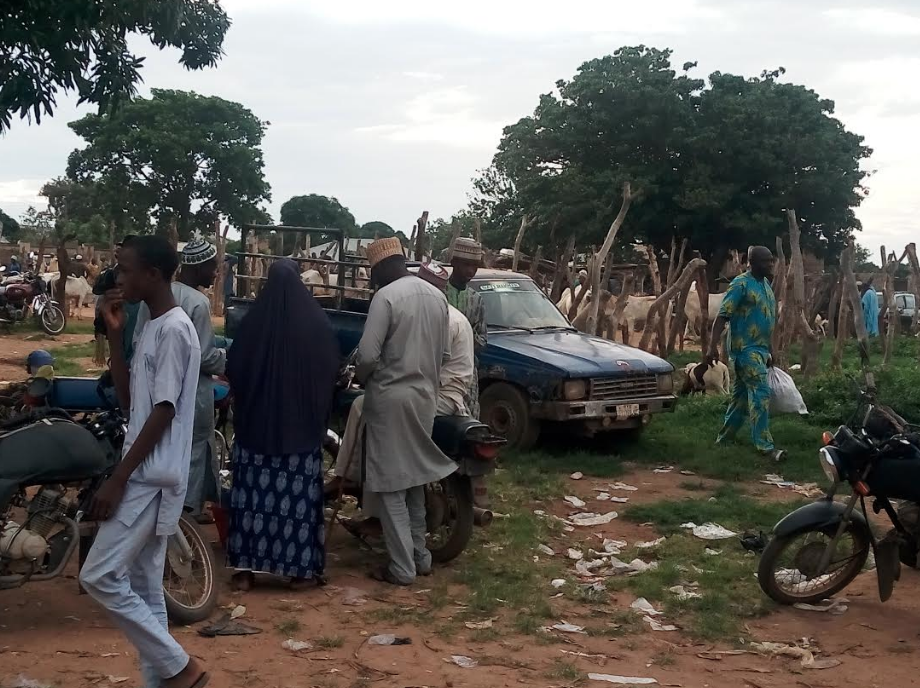
According to Demo, patience and constant communication have helped the relationship between the farmers and herders in the town. Overall, leaders of both groups always harmer on forgiveness as the first approach to resolve matters, then comes compensation, reconciliation and other measures.
“First, I will say we trust each other and Kabiyesi tells us to cooperate,” Demo said, pointing towards some Kishi farmers who were in the market to sell their goods.
“We forgive each other and we do a lot of give and take. We sit together to discuss issues without resulting in fights. The Fulani culture is quite different from what we have here; this is Yoruba land and culture. We understand how things are done here and have never seen any stranger come in without the knowledge of our leaders. If he hears anything, he calls a meeting; this is what I heard, what are you going to do, it has to be investigated.
“In fact, the day before yesterday, we had to turn back some trailers that came with about 300 to 400 cows. We told them we don’t have a space for them. We all have the same thinking, opinion, issues because we have been living here for long, that is why we have been able to maintain this peace.
Advertisement
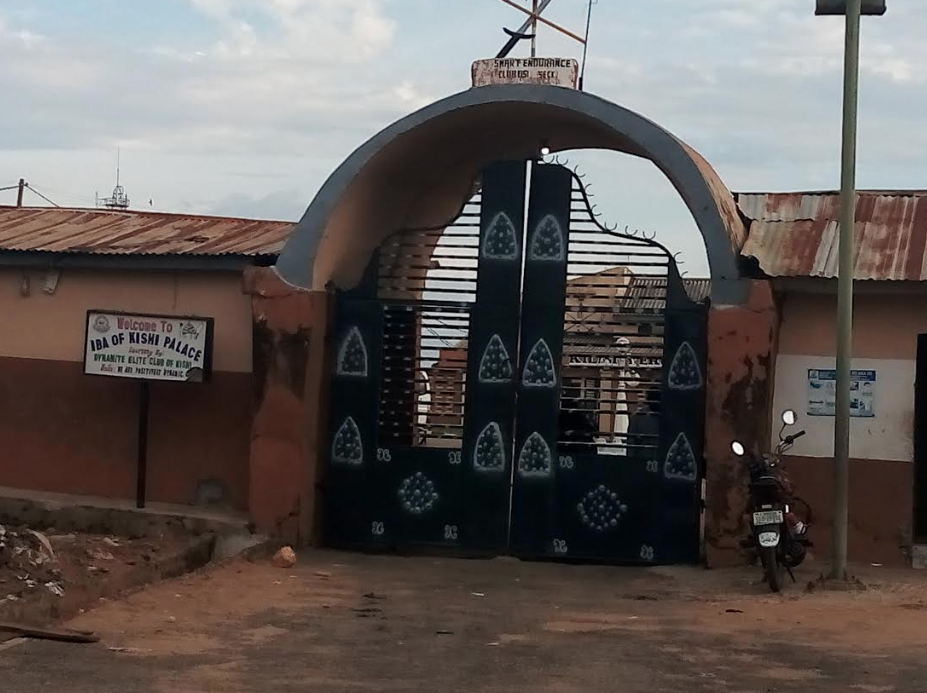
“Sometimes, when there is an influx of Fulani, the Wakalis are always on the alert, who in turn inform us. If anyone wants to settle, they take them to the palace first.
“Because we have already been warned not to use ‘cutlass’ to settle our disputes. We just have able leaders who help us to manage all these issues effectively.”
Sikiru Arowoduye, secretary to the monarch, explained how rifts are settled: “We only come in when the two cannot reach an agreement. Leaders of the two groups inspect damages, charge and compensate based on the losses. If it is a thing I can endure, I leave you but if it is not you pay me.
“But if you say you don’t have the money, the other party can involve the police or security agents. Once we intervene and the guilty party does not want to agree to the settlement or listen to their Joro, the police are called in. There, he will be forced to pay extra — for the farm that was damaged and also the police.”
Advertisement
IT HAS NOT ALWAYS BEEN PEACEFUL THOUGH
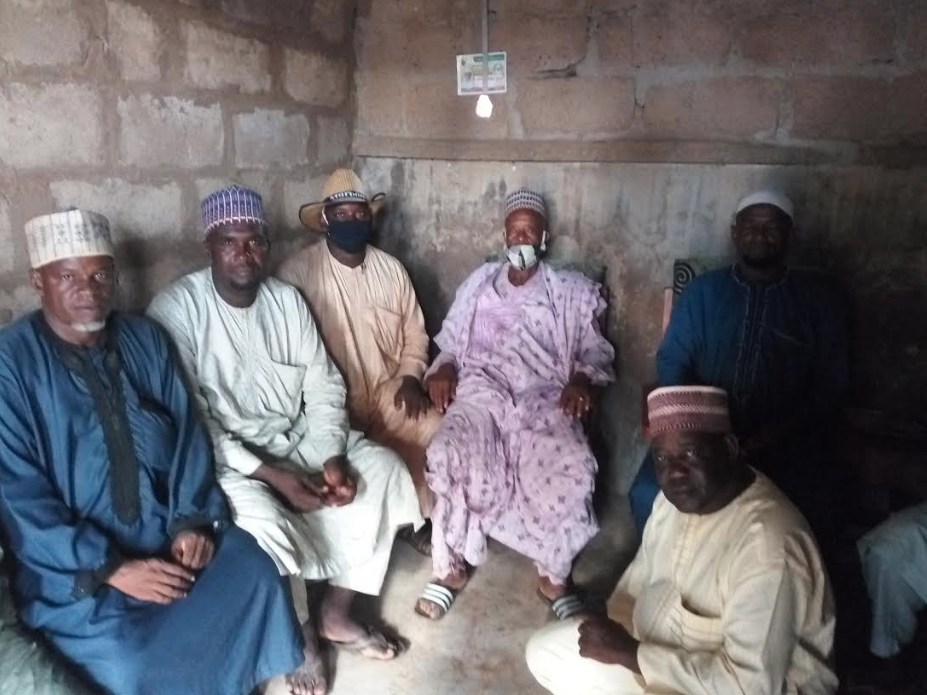
A growing population, depleting land for farming, cattle rustling, destruction of farmlands and sometimes, desertification has continued to worsen the fight between farming communities and herders, leading to loss of lives, displacement, loss of livelihoods and sometimes, famine.
Advertisement
Reprisal attacks between the two have made a lot of people abandon their homes. Desertification, as well as cattle rustling, has also forced many herders to migrate to other places in search of pasture and water for their cattle.
States within Nigeria’s middle belt and north-central have witnessed most of these clashes. The competition for land and water resources increases the tensed relationship between the two. Farmers complain of cattle destroying their lands while the herders complain that their grazing routes have been encroached on while their cattle are rustled or killed in retaliation for the destruction of farmlands. Thus, an unending cycle of attacks and reprisals begin.
Advertisement
According to a report released in 2018 by Amnesty International, about 3,641 persons were killed in violent clashes between herders and farmers between January 2016 and October 2018, across states including Adamawa, Benue, Kaduna, Taraba, Plateau and Zamfara. At least, 406 injured were injured, 5,000 houses burnt and 182,530 persons displaced.
In February 2019, Nasir el-Rufai, governor of Kaduna, had said 66 people were killed in an attack on Kajuru local government area of Kaduna but controversy had trailed the figure with some claiming that it was on the high side.
Advertisement
The Miyetti Allah Cattle Breeders Association of Nigeria (MACBAN) later released 131 names of Fulani pastoralists said to have been killed in the violence. Out of the 131, MACBAN said it buried 66 while another 65 were missing.
Another report released in 2019 by the United States Agency for International Development (USAID) put the estimate of those who have died in the conflict at 7,000 while the Nigerian economy lost $13 billion to the clashes.
Jimoh Aderibigbe, a community leader, however, said there are stubborn herders who set out to cause trouble. The community leader explained that there is a meeting, every month, for farmers, herders and other locals where issues are discussed.
“There are stubborn ones among the Fulanis. Because some of them lie; once you don’t meet them where the damage has been done, they would lie and deny responsibility. In cases like this, we take the matter to the police station where it is settled,” Aderibigbe said.
Saheed Olawoyin, a 56-year-old farmer, also confirmed that the relationship had not always been cordial between the farmers and herders. He went on to say an imminent reprisal attack on the herders brought up the idea of forming an association where complaints could be tabled and resolved.
FARMERS HAVE TAKEN OVER OUR GRAZING ROUTES
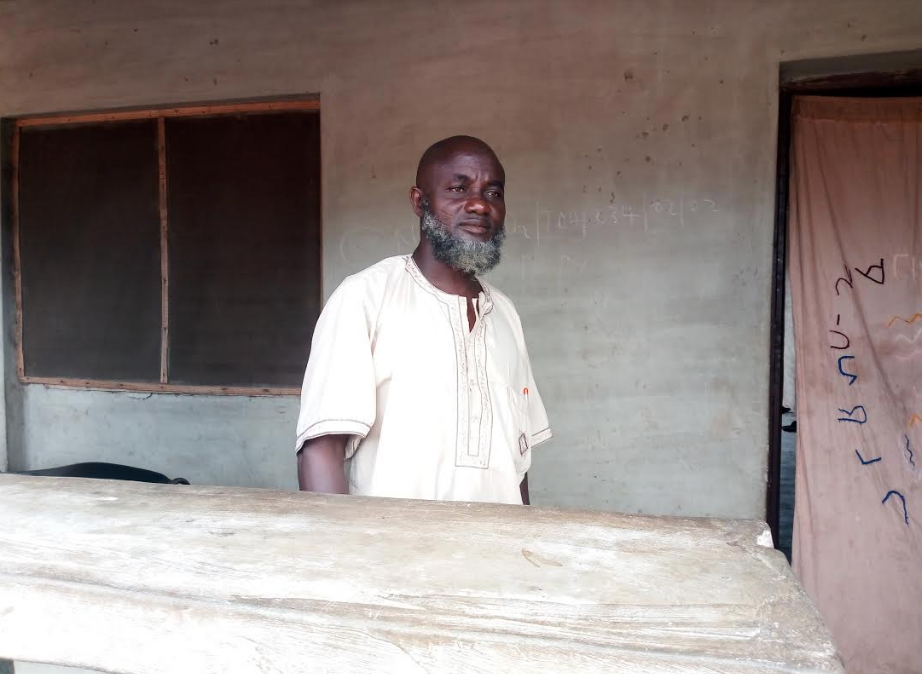
Mohammed Abubakar, chairman of Miyetti Allah in Kishi, said most of the routes left for herders as pathways and for grazing have been taken over by farmers, accusing them of encroaching on grazing routes allocated to herders.
According to Abubakar, some non-indigenous Fulanis also migrate to the town in search of pasture land and water for their cattle.
“But you see, time has changed. We now have a population explosion and we are all using a fixed land while the number of people is increasing every day,” he said.
“We all have to share the land which brings conflict. The farmers, cattle rearers all depend on the same land. Now, you see the areas where we have what is called FADAMA, where during the dry season, Fulani can move to get water, fresh grasses but all have been taken away from them.
“If you go there, you will see crops planted on the land and you know cattle have routes that were dedicated to them but the farmers have encroached on the lands.”
Asked if there had been situations where they had to deal with stubborn herders who insist on coming into the town, he replied: “We know that they move around and with cutlasses… they have been warned not to do so. As many of them, when they are coming, we ask them if they have a friend around that can vouch for them, then they are told to drop their cutlasses at the entrance of the town and after conducting your business, go, pick it and leave.”
SOMETIMES, FARMERS ARE AT FAULT
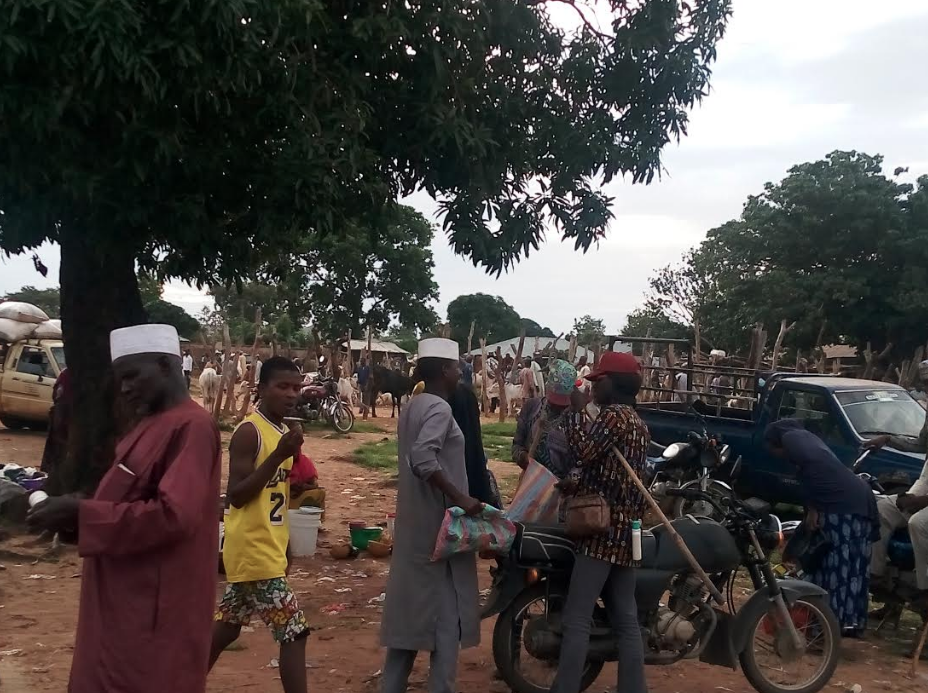
On allegations that roads designed for herders had been taken over by farmers, Taofeek Olowoigi, a farmer, refuted the allegation, saying the herders do not have any grazing routes in the town.
IS RUGA, BUHARI’S PROPOSED CATTLE RANCHING SYSTEM THE ANSWER?

In June 2019, the federal government came up with an initiative called RUGA (Rural Grazing Area) aimed at addressing the incessant clashes between herders and farmers. The government had said the settlement was for animal farmers, not just cattle herders, where they will be settled in an organised place with provision of necessary basic amenities such as schools, hospitals, road networks, vet clinics, markets that will add value to meats and animal products.
The government said beneficiaries will include all persons in animal husbandry, not only herders. It noted that 12 states have indicated interest in the pilot programme but controversy had trailed the project as many Nigerians saw it as a plan to seize lands and create settlements for herders and also as a grand plan to Islamise Nigerians.
While some state governors and stakeholders welcomed it, others had said it could lead to more attacks on communities. The federal government later suspended the project, attributing this to the lack of consistency with the National Livestock Transformation Plan.
But both the Kishi farmers and herders opined that grazing reserves cannot work out in the south-west.
On his part, Olawoyin said the government cannot drive away farmers, who have no other source of income, from their lands and then allocate them to cattle rearers “who have caused so much destruction”.
OSINBAJO’S SOLUTION IN SIGHT?

Later in September, the federal government rolled out the National Livestock Transformation Plan which was unveiled by the National Economic Council (NEC) headed by Vice-President Yemi Osinbajo.
According to the plan, market-driven ranches with different cluster models would be created in selected states for improved livestock productivity through breed improvement, pasture production, as well as efficient land and water productivity.
Designed to solve farmers-herders conflicts and to ensure food security, the states to benefit from the plan include Adamawa, Benue, Ebonyi, Edo, Kaduna, Nasarawa, Oyo, Plateau, Taraba and Zamfara and would cover a period of 2019 to 2028.
David Umahi, chairman of the sub-committee on herders/farmers crisis, said the plan will be implemented as a collaboration project between the federal and state governments, farmers, pastoralists and private investors and that participation remained voluntary.
He said going by the implementation guidelines proposed by his committee, the federal government is to contribute 80 percent in grant to support the project while states will contribute land, project implementation structure, personnel and 20 percent cost of the project.
Aderibigbe suggested that the government can still find a logical way of helping the herders which would not show favouritism and affect those involved, noting that government-owned lands can be allocated to herders to reduce the fights between herders and farmers.
Demo is of the view that other farmers and herders across Nigeria can also pattern their lifestyle after Kishi, to sustain peace.
He said: “Issues capable of breaching peace the community enjoys need to be quickly addressed with lots of patience. If left unresolved, we know what that can cause.”
Weighing in, Osai Ojigho, country director of Amnesty International, said to reduce crisis, government should find leaders in these communities and work towards an open engagement by setting up advisory councils that will represent both parties.
She added that prosecuting offenders would also go a long way in reducing instability in such crisis-prone communities.
“Also, a lot of the issues could easily be solved if there is an independent and impartial agency that is offering security. They should act in a timely and impartial manner. Regardless of whose side you are on, you should be able to identify the culprits from both sides and prosecute them.”
“On ranching, a lot of people have raised concerns about it because of property rights and who will bear the cost. If you are asked to pay for it and another person gets the benefit, that is unfair. So if you say people are traditionally nomadic, then it means that you have to provide something that will encourage them to adapt to modern ways of doing things but you cannot encroach on someone’s right because of that.”
Hopefully, Nigeria’s farmers-herders crisis may soon be a thing of the past as the country hopes to address critical issues that lead to violent clashes and which also limit the growth of the livestock industry.
Support for this report was provided by Premium Times Centre for Investigative Journalism with funding from Free Press Unlimited.
Add a comment

